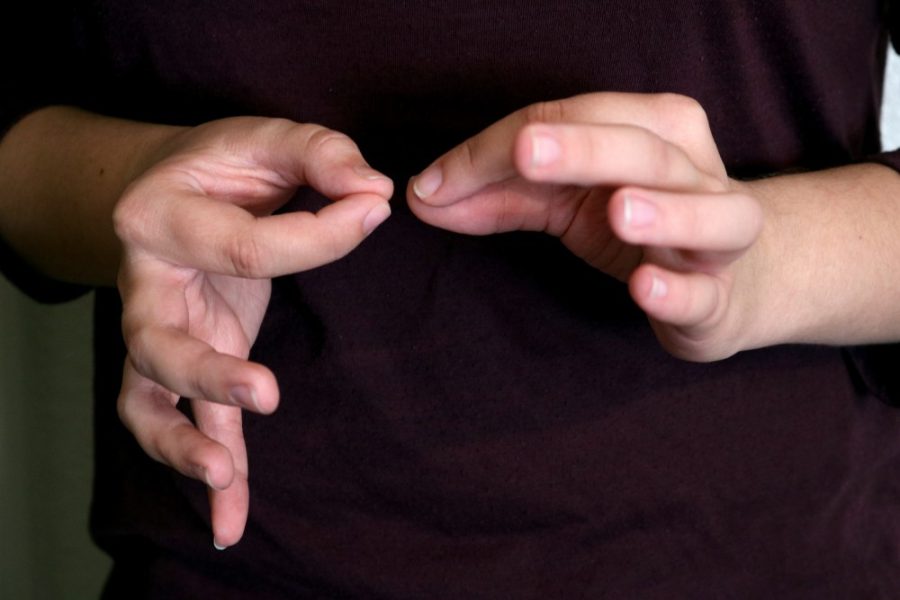The UA offers a variety of different language and culture programs, from German to Spanish and everything in between, including the special education and rehabilitation major. This major offers a variety of different tracks for students within the major to pursue.
One of these is a concentration in deaf studies. This College of Education program gives students the skills needed to work with people who are deaf and partially deaf in their post-graduation careers and pursuits.
Students come from all walks of life to pursue deaf studies and often find their passion for the subject through taking an American Sign Language course or having a friend or family member who is deaf or partially deaf.
“I picked deaf studies because it’s unique and something that called to me when I was first introduced to the deaf community,” said Breyden Main, a sophomore studying special education and rehabilitation with a concentration in deaf studies. “I took ASL in high school and … at one of my track meets the Arizona State Schools for the Deaf and Blind was there and I decided I wanted to sign with them.”
Main is pursuing a degree with an emphasis in educational interpreting, an emphasis within the deaf studies concentration. Educational interpreting is the most popular topic for students to pursue, according to Cindy Volk, an associate professor of practice in the department of Disability and Psychoeducational Studies.
While all students in the deaf studies program must take four semesters of ASL and become proficient in the language, those with an educational interpreting emphasis continue to work on their abilities to communicate through sign in intensive ASL classes and interpreting courses.
Interpreting emphasis students are required to do a practicum in a classroom with deaf or partially deaf children over the course of three semesters to develop their skills in real-world settings.
Students observe the workings of a typical classroom with a deaf student and interpreter and discuss how the process works and how learning and interpretation changes depending on the student for their first practicum course.
The second semester of practicum pairs up interpreting students and sends them to classrooms without deaf or partially deaf students so they can practice educational interpretation with each other without the pressure of interpreting for a person who is deaf.
In their third semester, students are placed in classrooms alone as interpreters for students who are deaf and provide translations the students need to understand their courses. This experience gives graduates an opportunity to pursue careers in interpreting, whether it be in a classroom, at events or in other situations and fields.
“There’s such a need for interpreters around the U.S.,” Volk said. “Most kids are mainstreamed into public schools—over 90 percent of them are—so all the deaf kids in the public schools need an interpreter.”
Both of Volk’s parents are deaf, so she grew up fluent in both English and ASL, and has always been close with the deaf community.
The UA program is closely connected with the deaf community in and around Tucson as well. Besides the practicum courses, all of the program’s students are matched up with a deaf mentor in the community, which helps them with their ASL proficiency and knowledge of deaf culture.
“Everybody in the deaf community is really helpful,” said Rebecca Reiter, a sophomore studying special education and rehabilitation with a concentration in deaf studies. “It can be really difficult when learning a new language to follow a conversation in that language and use it with those people, but they’re all really helpful and patient.”
Reiter is pursuing an emphasis in educational interpreting and hopes to interpret in classrooms for deaf children after she graduates. Students in the major are not only close with the deaf community, but with each other as well.
“I enjoy being part of a program that is composed of individuals that truly care not only about their work but also about the community as a whole,” Main said.
Follow Victoria Pereira on Twitter.









